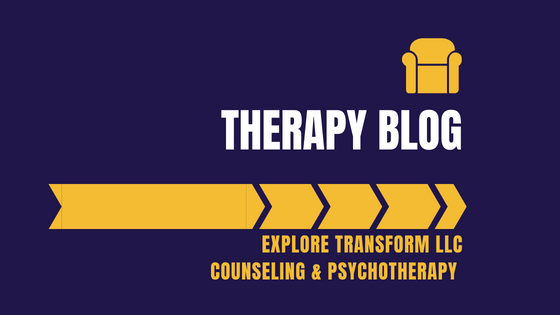|
Depression is greatly associated with stress and trauma. When our nervous system is overwhelmed, so there is not even the hope of fighting or fleeing, we collapse. According to the latest research, 14.8 million U.S. adults had at least one major depressive episode with severe impairment in the past year (Anxiety and Depression Association of America).
I am a firm believer in empowering people with knowledge, so I want to share with you a particular type of EMDR that works particularly well with depression, and that is called DeprEnd EMDR. When we first talk to you, we will create an event map of all your depressive episodes, and we will cover your whole life, not just the current or most recent episode. We are looking for triggers for the depression but this can be hard as depression often lingers in the background, like an impending storm. We then need to see how you deal with everyday stressors. If you are having a particularly hard time, we might spend a little longer in the initial phase of this protocol, helping you to develop and use resources to better able these stressors. We also need to assess whether you can establish and use a safe place. This is a place or a memory that you can use to make you feel safe and calm, and it can be as simple as the image of a waterfall, lake, or beach. As we work within this phase, we will use slow eye movements to help reinforce the positive associations with these resources. We then move into the main part of DeprEnd EMDR, which is to choose episode triggers to reprocess. Reprocess means using rapid eye movements, pulsers, or toners, to desensitize these episodes and install more positive beliefs and associations. So we could reprocess stressful life events that took place one or two months before the depressive episodes. Some therapists use the Beck Depression Inventory (BDI) to measure improvement but other therapists find these measures to be restrictive, and they prefer to work collaboratively with the client to agree on an assessment of how the client is doing in response to the work. A focus of EMDR includes an identification of the negative belief/cognition related to that distressing memory. With DeprEnd EMDR, we also seek to identify a negative belief/cognition about the depressive episodes. For example, a prevailing belief might be “I am worthless”. In this case, we would ask you what in your life proves you are worthless, find a present trigger for that belief, identify the body affect, and float back on that body affect to find an earlier memory that represents this belief. However, EMDR does not just focus on the beliefs associated with depression. We are aware that the body holds onto a great deal of stress and trauma, and so we will work with you to identify (and reprocess, using rapid eye movements) depressive body states. The final part of the DeprEnd EMDR protocol is to rehearse future triggers for depressive episodes. We will ask you to identify the worst part of the anticipated future trigger (for example, seeing the sadness in your partner’s eyes), and we will help you to identify the quality you need to anticipate that (for example, courage or compassion). We will identify an image that represents that quality (for example, the image of you hugging yourself), we will get you to identify where you feel that in your body, and add rapid eye movements to that. Even though depression might be an inevitable part of our everyday life, the suffering can be reduced with a little bit of support and professional guidance. Take care of yourself. ~~~ I wonder if you have read anything that creates more questions in you. If you would like to explore these questions, I am here. You can reach out by calling, texting, or emailing me. Or you can use the contact form on the About page of this website. ~~~ Chris Warren-Dickins LLB MA LPC Explore Transform LLC Counseling and Psychotherapy in Bergen County, New Jersey www.exploretransform.com +1 (201) 779-6917 #trauma #depression #anxiety #emdr #therapist #psychotherapy #counseling #BergenCounty #NewJersey Comments are closed.
|
Due to the COVID-19 health crisis, we are only offering sessions online.
Our address is 143 E Ridgewood Ave, #1484, Ridgewood, NJ 07450
Telephone: +1-201-779-6917
Lead clinician: Chris Warren-Dickins LLB MA LPC
EXPLORE TRANSFORM LLC
Our address is 143 E Ridgewood Ave, #1484, Ridgewood, NJ 07450
Telephone: +1-201-779-6917
Lead clinician: Chris Warren-Dickins LLB MA LPC
EXPLORE TRANSFORM LLC
© COPYRIGHT 2024 CHRIS WARREN-DICKINS. ALL RIGHTS RESERVED. NJ LICENCE # 37PC00618700



 RSS Feed
RSS Feed
